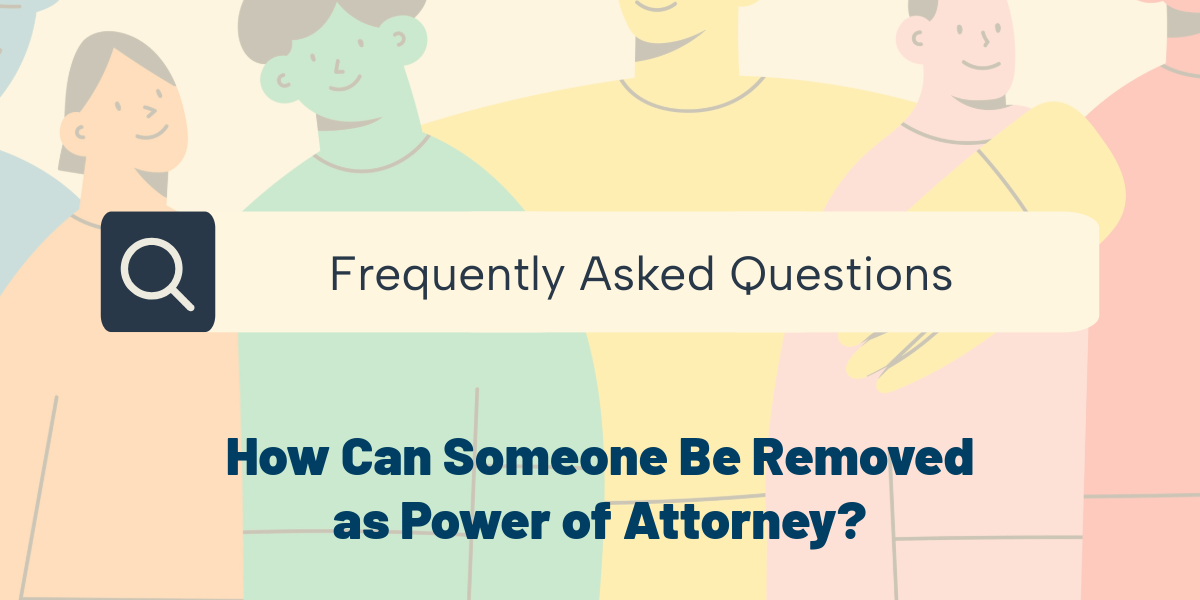How Can Someone Be Removed as Power of Attorney? And Other Related Questions
Detailed Answer
In North Carolina, a power of attorney (POA) grants an agent authority to act on a principal’s behalf. The principal may remove or revoke that authority at any time if they have mental capacity. If the principal cannot act, a court may step in to remove an agent who misuses or abuses their power.
1. Revocation by the Principal
A principal with capacity may revoke a POA in writing. To do so, the principal should:
- Execute a written revocation.
See N.C. Gen. Stat. § 32C-6-605. - Notify the agent and any third parties relying on the POA.
- Destroy or mark the original POA document as revoked.
2. Automatic Termination Events
Certain events automatically end a POA:
- Death of the principal.
- Revocation by the principal (if they have capacity).
- Divorce or annulment, if the agent is the principal’s former spouse.
- Expiration of any term or condition stated in the POA.
3. Court Removal of an Agent
If an agent acts against the principal’s best interest, an interested party may petition the court. The court may remove the agent and appoint a successor. Grounds for removal include:
- Breach of fiduciary duty.
- Misappropriation of assets.
- Failure to follow the principal’s instructions.
To start a court action, file a petition under N.C. Gen. Stat. § 32C-8-801. The superior court will hold a hearing and may:
- Remove the current agent.
- Appoint a successor agent.
- Order accountings or other relief.
4. Agent Resignation
An agent may resign by delivering a written resignation to the principal and any co-agents. If the principal is incapacitated, the agent must also notify a successor agent or file the resignation with the court.
Key Points for Understanding Removal of a Power of Attorney
- Any principal with capacity may revoke a POA at any time.
- Written revocation and notice to the agent and third parties make revocation effective.
- Certain events automatically end a POA, including death and divorce.
- Courts can remove an agent for breach of duty or abuse under N.C. Gen. Stat. § 32C-8-801.
- Agents must resign properly if they cannot or will not serve.
- Timely action and clear communication help avoid disputes.
Contact Pierce Law Group
Removing or challenging a power of attorney can feel overwhelming. Pierce Law Group’s attorneys have years of experience guiding clients through North Carolina’s rules. Reach out today to review your situation and protect your interests.
Email us at intake@piercelaw.com or call us at (919) 341-7055.


